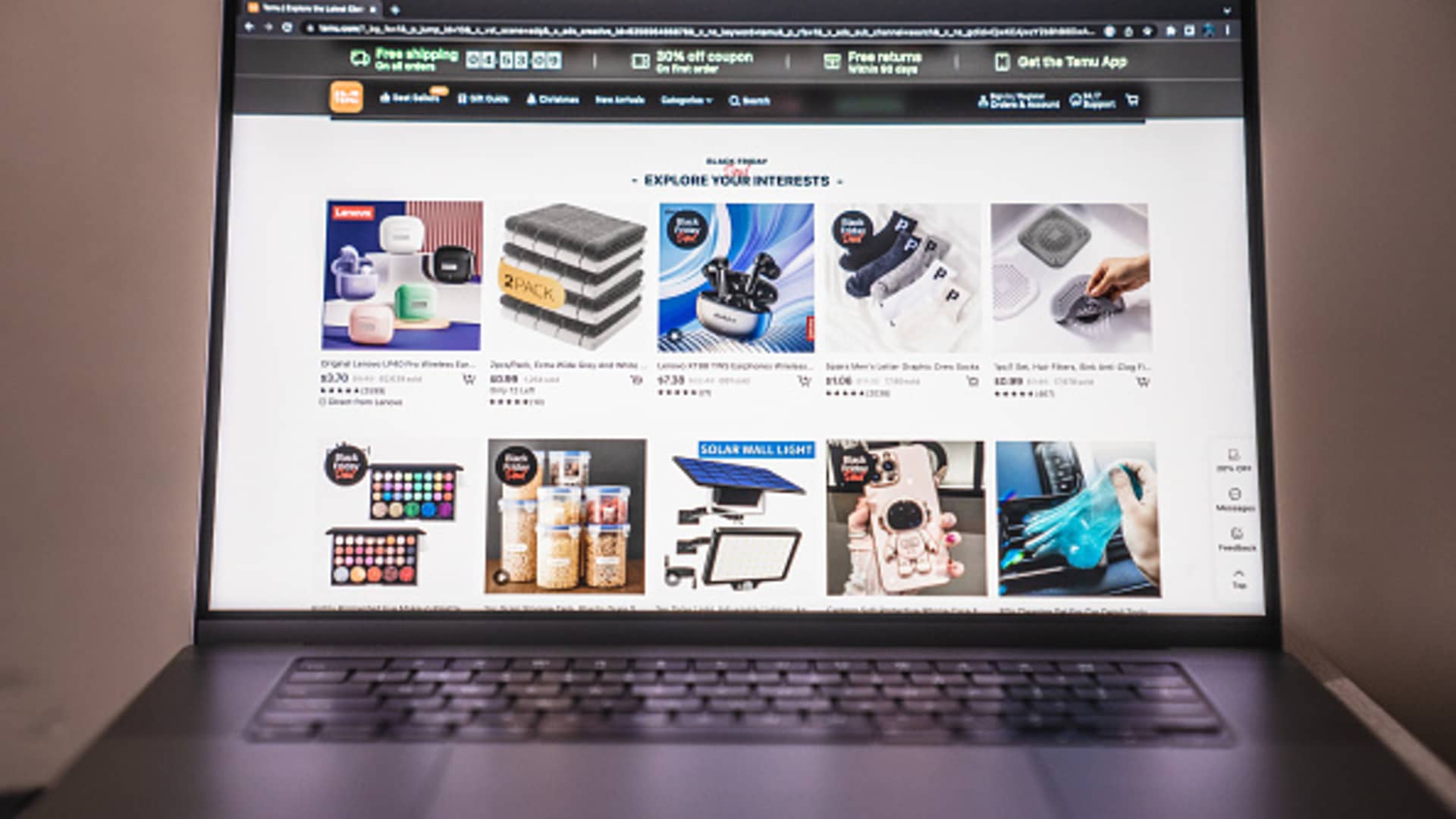Wall Street’s new e-commerce darling just overtook Alibaba in market cap — one analyst says it’s a ‘standout growth stock’

Wall Street analysts are betting big on one Chinese e-commerce giant: PDD Holdings . Investment firms Morgan Stanley, JPMorgan and Morningstar have all raised their price target for the parent company of discount e-retailers Pinduoduo and Temu. Just last week, PDD Holdings overtook Alibaba to become the most highly valued e-commerce company in China. PDD’s current market capitalization is nearly $190 billion, compared to Alibaba’s market capitalization of $185.8 billion, LSEG data showed. PDD posted 94% growth in third-quarter revenue from a year earlier, far outpacing Alibaba’s 9% growth during the same period. PDD’s revenue from transactions surged by 315% in the quarter ended September to nearly $4 billion. Analysts say that consumers increasingly looking for bargains in the face of economic uncertainties have helped boost PDD’s growth domestically and internationally. Morgan Stanley Morgan Stanley named PDD Holdings its top China e-commerce pick following last week’s strong earnings report. The investment bank raised its price target for PDD’s Nasdaq-listed shares from $140 to $170, according to a Nov. 28 report after PDD’s earnings report — representing a 19% upside from Monday’s close. Analysts Eddy Wang, Kathy Zhu and Gary Yu cited the performance of cross-border discount shopping app Temu as one reason for their optimism. “PDD’s strong 3Q23 results imply both sustainable market share expansion of its domestic e-commerce business and strong growth momentum of … Temu,” they told clients. “These advantages will sustain into 4Q23 and 2024.” PDD’s shares have surged about 75% since the start of 2023. JPMorgan JPMorgan called Temu “the second growth curve that few major China Internet peers have secured.” The U.S. investment firm has an overweight rating on PDD and raised its price target from $120 to $180 — representing a 26% upside from Monday’s close. “Temu’s fully managed model will capture more value in the supply chain against existing models, allowing Temu to sell products at a deep discount (30-70% now) to incumbent ecommerce players’ in most countries,” said analysts Andre Chang, Alex Yao and Nancy Liu in a report on Thursday. Temu’s contribution to PDD’s operating profit will swing from a 22 billion Chinese yuan ($3.1 billion) loss in 2023 to 25 billion yuan profit by 2027, the JPMorgan analysts estimated. Temu was PDD’s first international expansion outside of China and it rose rapidly on app rankings within a few weeks after its U.S. launch in September last year. It subsequently expanded across the world including to the U.K., Europe, Australia and New Zealand. Morningstar Morningstar Asia on Nov. 29 also raised its price target for PDD to $213 from $117, implying a nearly 50% upside from Monday’s close and attributing the upgrade to the “incorporation of … Temu in our valuation.” “We find PDD’s shares undervalued,” said Chelsey Tam, senior equity analyst at Morningstar Asia. “In our opinion, PDD is the best positioned amid value-for-money consumption trends in China and will benefit from strong long-term growth at Temu.” “Our order of preference is PDD, JD.com , and Alibaba,” she added. China’s budget-conscious shopper In a sign that consumers in China are increasingly more cost-conscious, PDD’s growing China business Pinduoduo contrasts with far slower growth for Alibaba and JD.com, which tend to sell higher-priced items and remain industry heavyweights. “[This demonstrates] Chinese consumers’ wallet share shift towards value-for money platforms — a trend that we expect to continue into 2024,” said JPMorgan analysts. PDD “remains a standout growth stock” amid a broader base economic slowdown in China, wrote The Benchmark Company in a Nov. 29 report. The research firm increased its price target for PDD to $190 from $140, representing a 33% upside from Monday’s close. Analysts Fawne Jiang and Long Lin attributed PDD’s strong performance to its unique value proposition as a value for money platform that could capture rising consumer demand even in a cautious spending environment.









